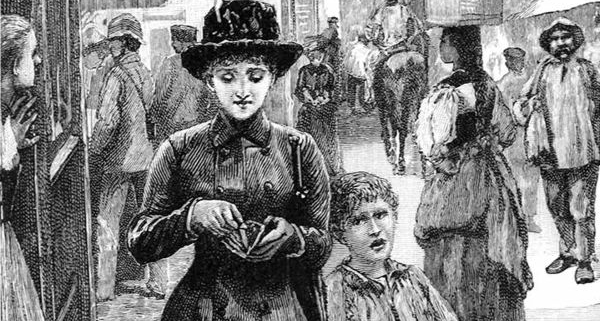Women, Bankruptcy & Divorce
Bankruptcy can add an extra layer of challenge to anyone’s life. It’s particularly hard for a divorced woman relying on domestic support obligations. Women, especially women going through a life-changing event such as a divorce, can be hit hard. Some might be facing a substantially reduced income while trying to care for children, find employment or set up a new household.
How do I know whether filing bankruptcy makes sense for me?
You need to consult with a knowledgeable bankruptcy lawyer to review your assets, debts, income and expenses.
If your income is under the threshold and your assets are minimal, you may qualify for a Chapter 7 Bankruptcy. This would allow you to discharge debts without making any payments and without losing any property. Not all debt is dischargeable. Child support and alimony obligations are not dischargeable in bankruptcy. Income tax debt that is generally less than three years past due is not dischargeable. Under most circumstances, student loans are not dischargeable. The majority of other unsecured debt, such as credit card bills, medical expenses, balances remaining after a foreclosure or after the repossession of a car are dischargeable.
If you do not qualify for a Chapter 7, you might consider a Chapter 13 Bankruptcy in which you would make monthly payments to a Trustee of your disposable income, usually for 60 months, after which you would receive a discharge of most debts. Other options a lawyer can assist with include trying to negotiate with your creditors.
How do current bankruptcy laws affect women differently from men?
Senator Elizabeth Warren has written a clear, detailed explanation of how bankruptcy legislation in the mid-2000s adversely affected women. Here is what she says about how current laws place special burdens on women:
For many women, the on-time payments of domestic support obligations are essential to economic survival. Until 2005, the bankruptcy of those who owed the obligations actually helped women because the bankruptcy wiped out credit card debts and other obligations, while leaving domestic support obligations intact. This gave women a clear field to collect from their ex-husbands. But the credit card companies got the laws changed in 2005, making it harder for these men to declare bankruptcy and harder to discharge credit card debt. That puts women trying to collect domestic support obligations and credit card companies in direct competition for the ex-husband’s resources. Credit card companies can hire lawyers and develop extensive debt collect departments, something that is really tough for women. When the credit industry controls the bankruptcy rules, women lose.
Twenty-nine women’s groups — a diverse collection that included the Y.W.C.A., Hadassah, American Association of University Women, Church Women United, the NOW Legal Defense Fund and the Feminist Majority-publicly opposed the bankruptcy legislation.
What if my ex-husband files Bankruptcy?
Alimony and child support (Domestic Support Obligations – DSO’s) and obligations arising under an Agreement or Judgment of Divorce can’t be discharged in Bankruptcy. No Chapter 13 Plan can be confirmed without paying DSO arrears in full before any other creditors receive plan payments. Also, no plan can be confirmed without the debtor remaining current post-petition on DSOs.
Does declaring bankruptcy mean I won’t ever qualify for a loan or credit card?
No. You can likely obtain a loan or credit card within a few years under certain conditions. Although a bankruptcy will stay on your credit report for 12 years, you should try to obtain some credit post-bankruptcy, such as a pre-paid credit card. Use it responsibly, and have a reasonable income to help rehabilitate your credit rating.
How soon after filing bankruptcy can I start rebuilding my credit?
Immediately. You should obtain any credit that you qualify for and use it regularly. If you had a credit card with no balance at the time of bankruptcy, you can and should use it post-bankruptcy as long as you have the ability to pay if off on time every month. We do not recommend using credit cards for purchases that you can’t pay off in full every month. Simply use the cards for convenience instead of using cash. The overwhelming majority of individuals considering bankruptcy would likely improve their credit scores more quickly through a bankruptcy filing as opposed to any other process, absent the assets or funds for pursuing alternatives.













